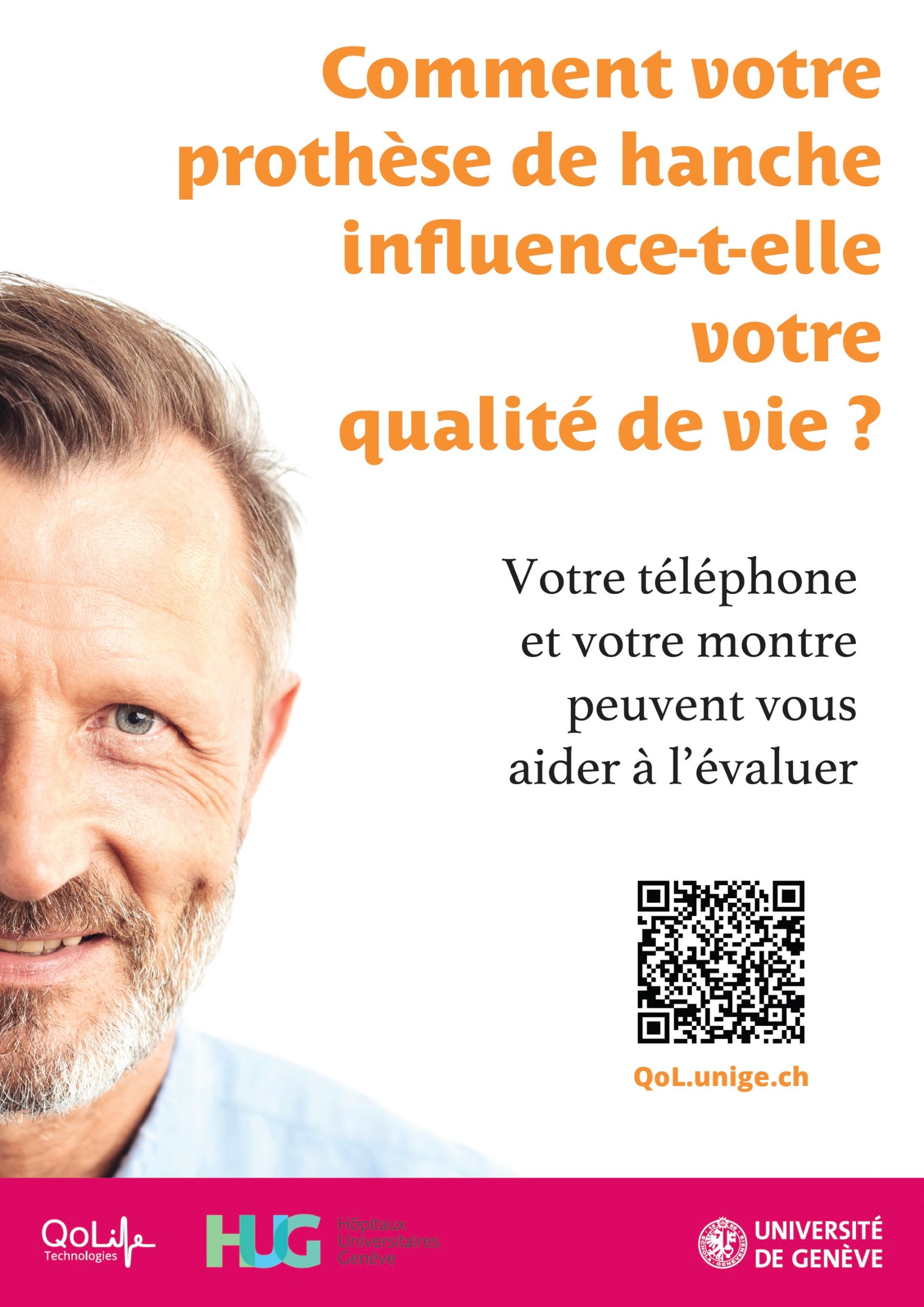
Les chercheurs du Quality of Life lab de l’Université de Genève (Suisse) vont bientôt commencer à recruter des participants pour une étude étendue dans le domaine de la prothèse de hanche et la qualité de vie.
L’étude nécessitera 2 ans de participation et impliquera une collecte de données essentiellement passive à l’aide d’un smartphone et d’une smartwatch. Les participants devront également répondre à de courtes enquêtes apparaissant sur leurs smartphones mobiles à des moments aléatoires.
Afin de participer à ces études de recherche, vous devez :
Nous vous prêterons une Smartwatch Withings ⌚ neuve pendant votre participation à l’étude.
Pour parteciper à l’étude et pour toutes autres questionnes, vous pouvez contacter 📧qol@listes.unige.ch (sujet: “anche”).
Nous vous contacterons très bientôt ! Merci de nous aider à faire de la science.
Toutes les données enregistrées sont anonymisées et stockées sur notre serveur sécurisé à l’Université de Genève, et ne seront ni vendues ni partagées avec des tiers. Cette étude sera évaluée par la CCER (Commission cantonale d’éthique de la recherche).
*** English ***
Your phone and your watch could help you do that.
Researchers from the Quality of Life Lab at the University of Geneva (Switzerland) will soon start recruiting participants for an extended study in the field of hip replacement and quality of life. The study will require 2 years of participation and will imply mostly passive data collection using a smartphone and a smartwatch. Participants will also need to answer short surveys appearing on their mobile smartphones at random times.
In order to participate in this research study, you must:
We will loan you a brand new Withings Smartwatch ⌚ for your participation.
To participate to this study and for any other questions, you can contact 📧qol@listes.unige.ch (subject: “hip”).
We will soon get back to you soon! Thank you for helping us do science.
All recorded data will be anonymized and stored on our secure server at the University of Geneva and will not be sold or shared with third parties. This study is going to be evaluated by the CCER (Commission cantonale d’éthique de la recherche).